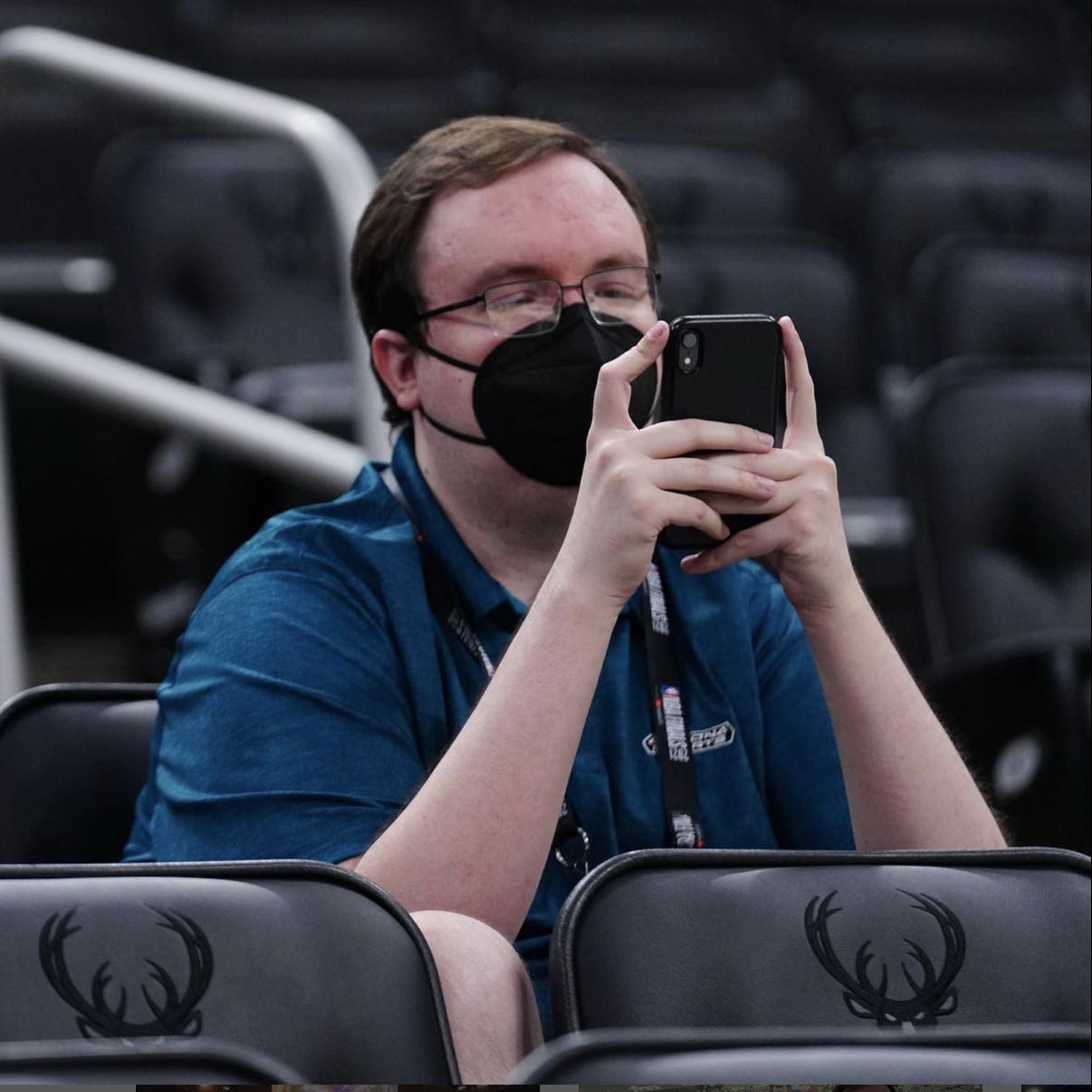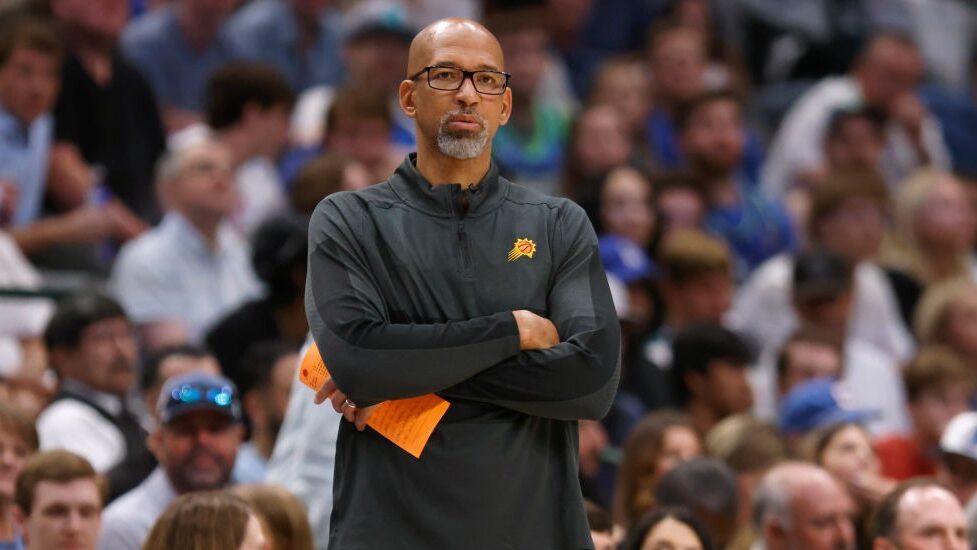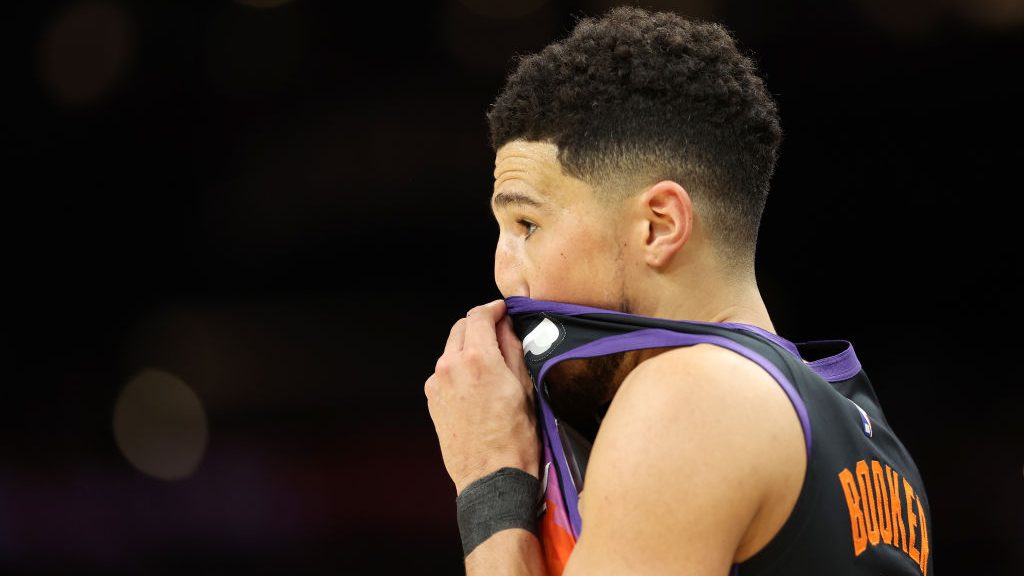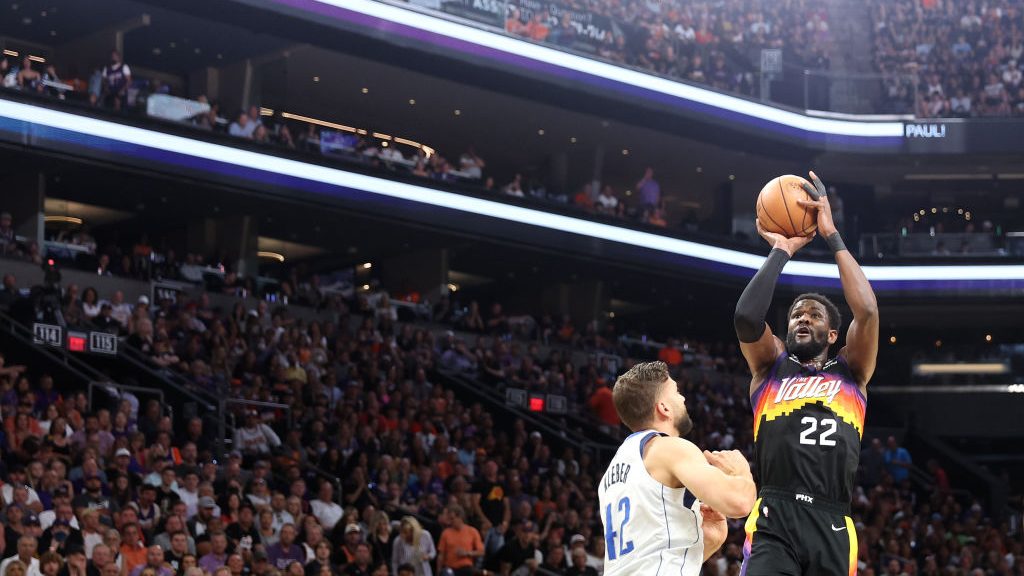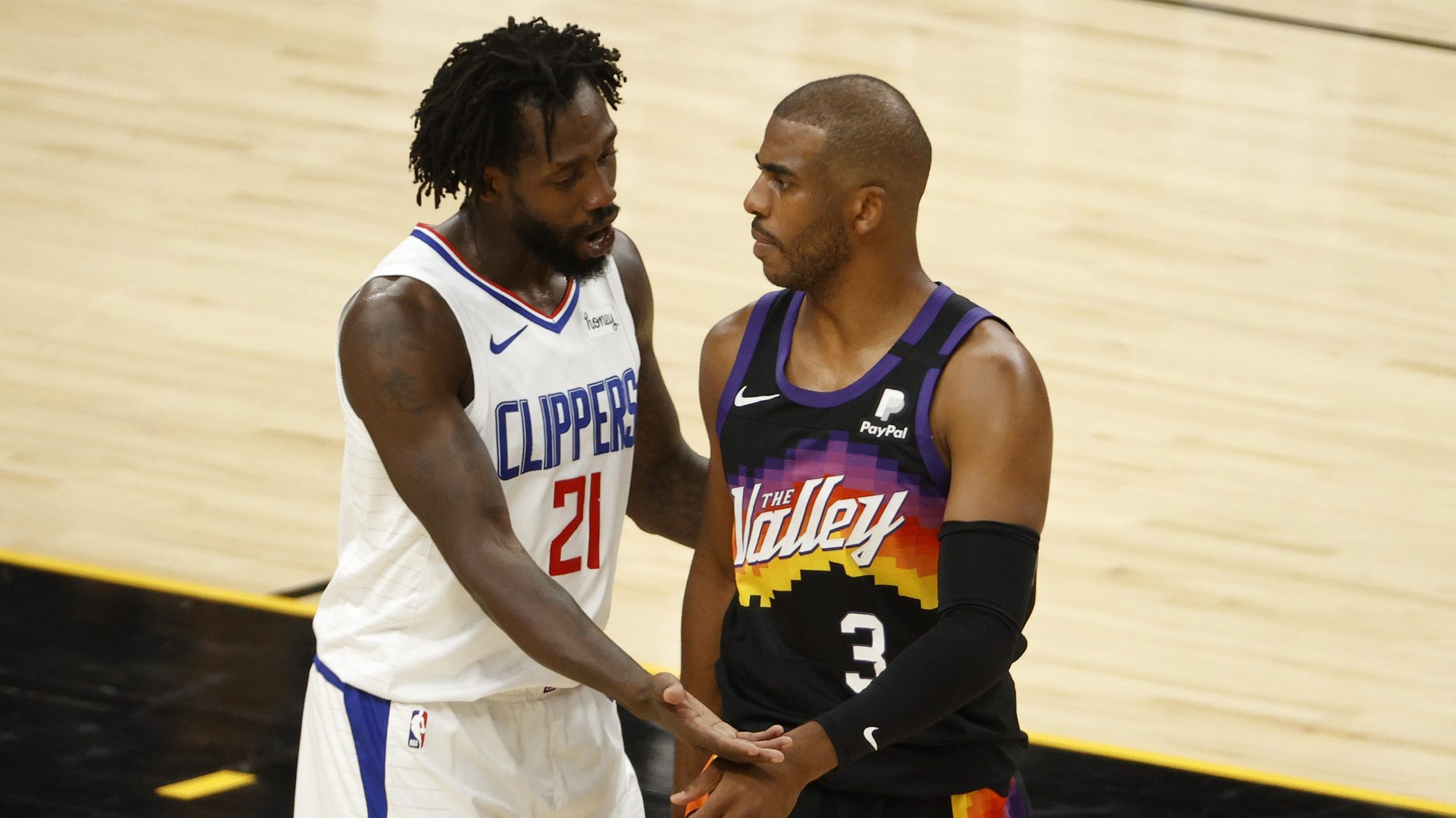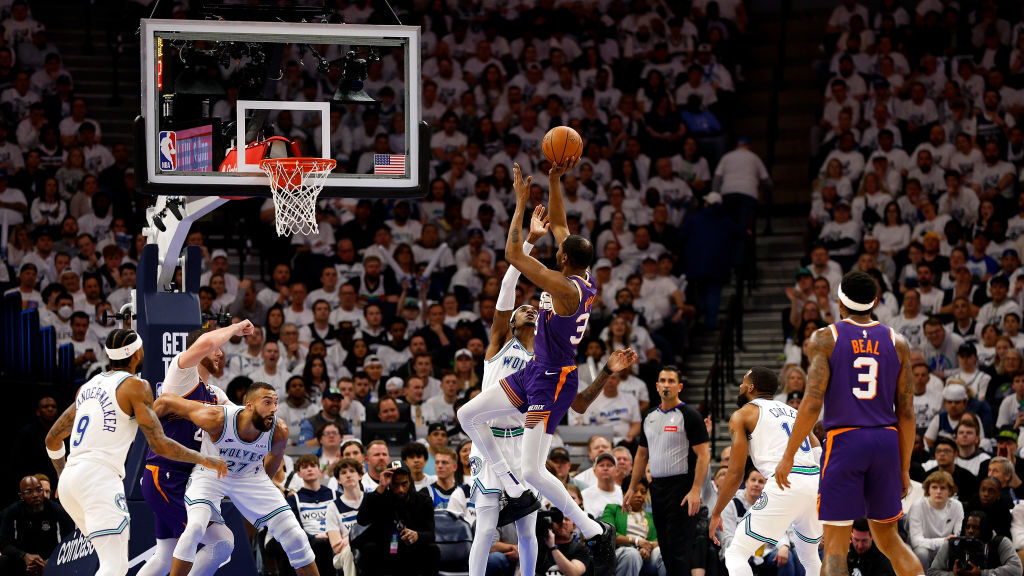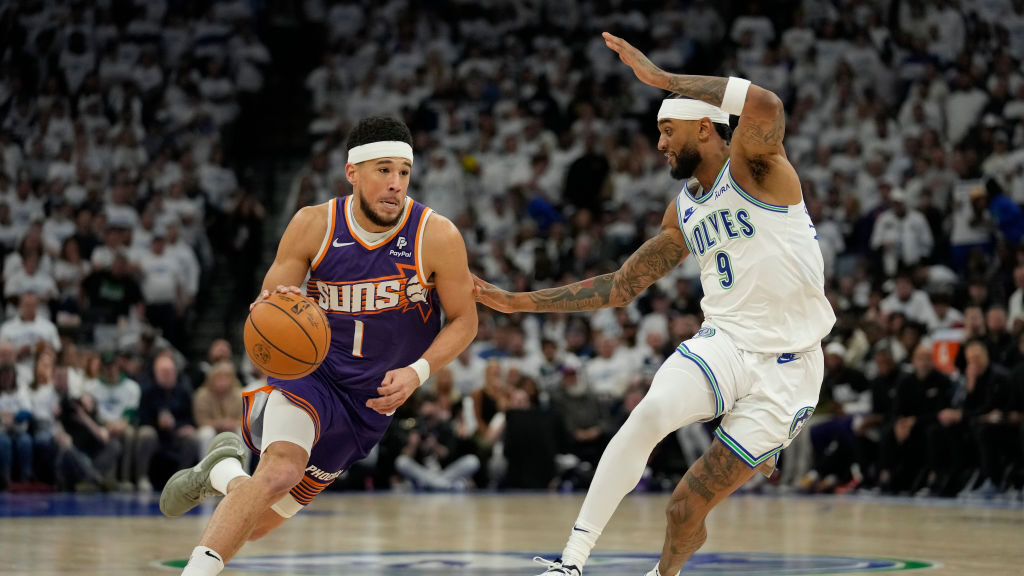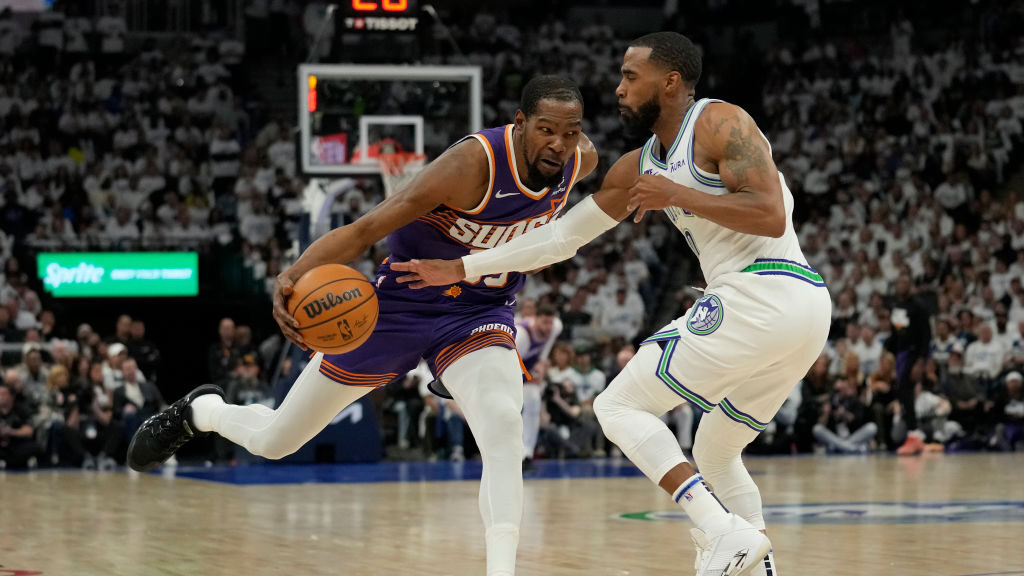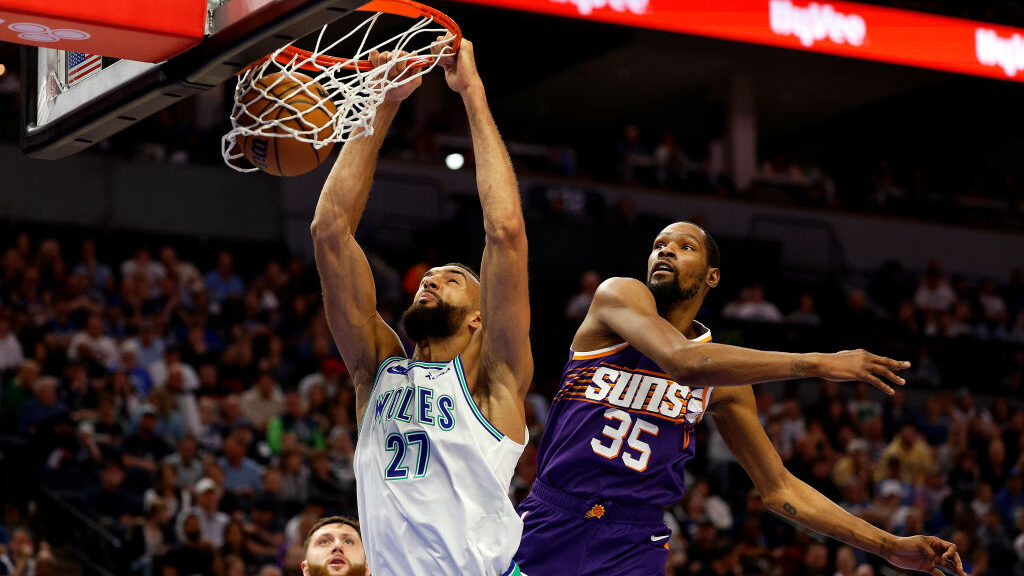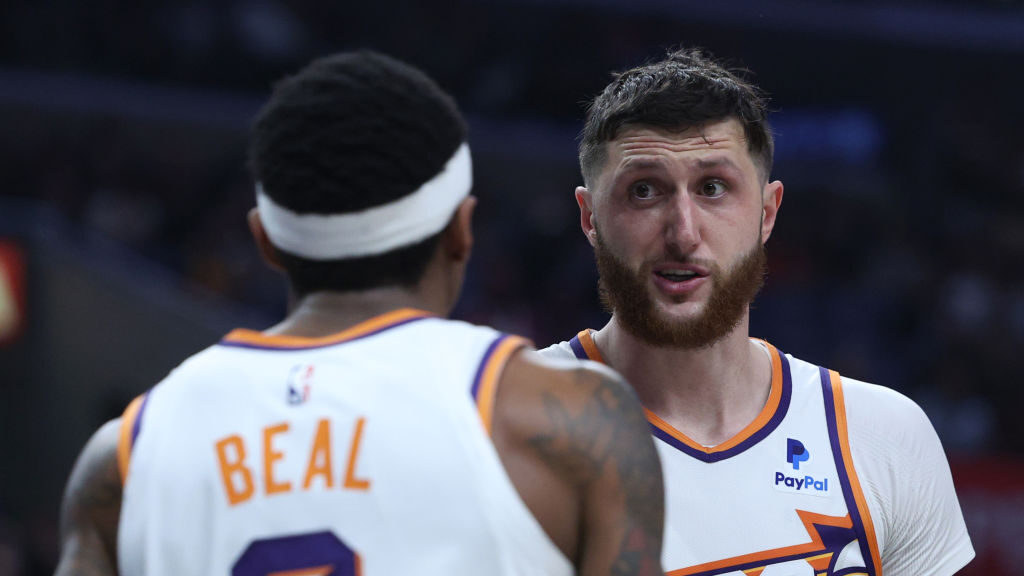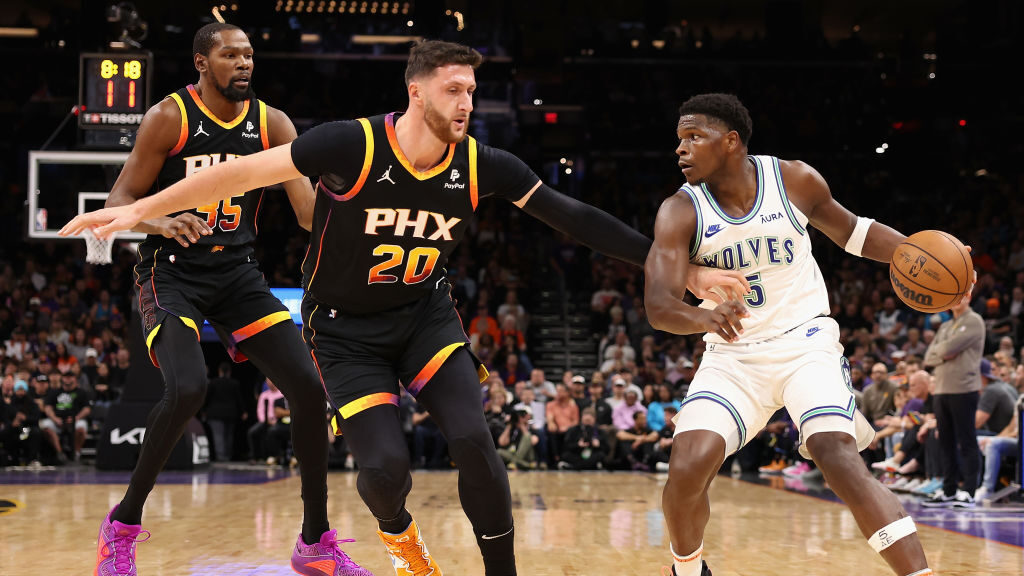Suns’ offseason questions: Deandre Ayton’s future, luxury tax concerns
May 16, 2022, 8:00 PM | Updated: May 18, 2022, 11:51 am
After the Phoenix Suns’ shocking end to the season, Empire of the Suns will roll through a number of questions the team has to answer this offseason.
First up is Deandre Ayton’s restricted free agency.
Let me share an excerpt from my own words prior to last postseason on Phoenix Suns center Deandre Ayton and the looming contract talks that would come the following summer.
But, if what we’ve seen more of this season — the dropped passes, the brainfarts on defense, the disconnected lack of intensity around the basket — continues, then the Suns must heavily consider looking into if they really want to be the team left to find out what he develops into.
Given the expected output for Ayton, there have been far too many nights this season where he has hurt the Suns more than he has helped them, and if it happens in the playoffs, they’ve gotta ask themselves if it’s worth taking that chance again in a window of contention.
Ayton went on to outplay Anthony Davis and MVP Nikola Jokic in back-to-back series before some phenomenal efforts in the Western Conference Finals. I wrote after that about how everything he did on the floor showed he was a max player who warranted the five-year, $177 million price tag he would surely want.
He didn’t get that, no deal got done and then Ayton went on to have that type of postseason performance I alluded to over a year ago in the second-round exit against the Dallas Mavericks.
He played 17 minutes in the Game 7 dud, looked completely unengaged (like his teammates) and had an exchange with head coach Monty Williams when he was subbed out for the last time in the season with 8:26 left in the third quarter. When Williams was asked about it after the game, he said “it’s internal.”
So, where do the Suns go from here with their 23-year-old center? Let’s establish what can happen from here first.
Ayton is now a restricted free agent. He can agree to a deal worth up to four years and $131.1 million with another team. The Suns would be able to match that deal if they want, and according to ESPN’s Bobby Marks, up to four teams currently project to have max cap space. There’s also the possibility of a fifth team entering that group.
The Suns can still sign Ayton to that five-year max or chop a year off at four years and $136.6 million.
This could also all be foregone by Ayton and he could take the one-year qualifying offer worth $16.4 million, a risk he would take at turning down the guaranteed money he will get offered in some fashion this summer so he can be in full control as an unrestricted free agent next summer.
There are also some sign-and-trade avenues Phoenix could take that we will toss out there just as an option to be aware of and not take a stroll down speculation avenue any further. That’s worth mentioning, though, because the Suns’ resources for adding another player if they let Ayton walk are much more tied up thanks to operating as a team over the cap.
The dark cloud hanging over this is the Suns’ salary cap situation which almost undoubtedly has them becoming a luxury tax team next season, meaning the organization will have to pay an extra chunk of change in order to go past the limits of the “soft cap.”
This gets dicey quickly because of two factors. The further a team goes into the luxury tax, the more expensive it gets. A price of $1.50 for every dollar a team goes above the tax line between $0-5 million expands the further those millions go up.
Secondly, a franchise becomes a repeat offender if it pays the tax in three of its last four seasons, which triggers those dollar prices even higher. The Suns, of course, would have it be their first year next season but long-term contracts can have being a repeater sealed (or force other actions to avoid it) in a hurry.
For reference, Spotrac has 10 teams down from this season as having a luxury tax bill. The Los Angeles Clippers ($56 million) and Golden State Warriors ($52 million) had hefty price tags while the other eight franchises paid less than $20 million. The year before, however, had three teams pay at least $83 milion.
This is why trading for someone like Eric Gordon at the trade deadline would have been a big hit, as his money on the books next season would have made the luxury tax bill even more expensive.
Suns owner Robert Sarver said in July of last year on Arizona Sports’ Burns & Gambo that he knows paying the luxury tax comes with pursuing a championship.
Your quick answer here on next year’s books is that Suns ownership will likely have to pay a figure in the tens of millions for the 2022-23 season’s tax bill. Just a matter of how high or low that gets in other moves.
The question is how much the looming bills beyond that factor into the decision of signing Ayton to a long-term contract.
Devin Booker ($33 million), Chris Paul ($28 million) and Mikal Bridges ($20 million) are expensive long-term contracts already on the books for next season. Booker’s deal expires in 2024 and he deserves to be signed to the supermax extension he’s eligible for this offseason that would have those post-2024 numbers get crazy.
Paul’s down for a partially guaranteed $30.8 million in that last year of Booker’s previous extension, the 2023-24 season, while that’ll just be year two of Bridges’ four-year, $90 million extension. If the Suns agree to an extension with Cam Johnson this summer like they did with Bridges last offseason, that would be the first season of his new deal.
In a world where both Ayton and Johnson are signed, that means the Suns are staring down the barrel of ludicrous luxury tax bills. A talented, young team gets costly once those rookie deals expire.
We just have to wait and see if the Suns are willing to pay up for that.
When it comes to Ayton, I’ll share my simple thoughts. This will ultimately come down to the front office’s willingness to accept Ayton for who he is.
Four years in, he has proven that those bouts with aggression and focus will persist, even in the postseason. He has also proven that he takes large strides as a player every season, is a borderline top five player at his position and is great both offensively and defensively.
His defense was what really improved for the first three seasons while Ayton’s offense, particularly with his hook shot and floater helping him dominate the short midrange area of the floor, made him more of an impactful two-way presence individually this year.
There is an inconsistency that comes with that. At this point, that’s how the Suns have to evaluate it. They have no choice but to, and it’s probably why they didn’t want to give him the five-year max last summer.
If the Suns don’t accept that, the identity of their team will have to change. The ground Ayton covers defensively, the work he does on the glass and the gravity he sucks in as a rim roller offensively will not be a skill set replaceable by one player. It might also allow the team to find its own consistency a little easier, even though a potential replacement for Ayton almost certainly won’t be a better player than he is. Maybe that’s the shakeup this group needs.
Entertaining that conversation also has to do with what’s out there on the center market, something the Suns have to explore.
The fact that we are even seriously discussing the status of Ayton’s future tells the tale enough. Who knows what direction this goes in a few months but there is hesitation in the air and could be a recipe for a serious change.

